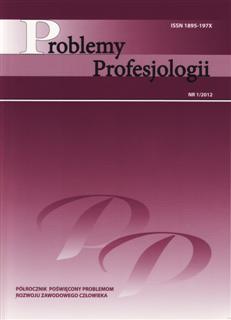Krajowe Ramy Kwalifikacji a współpraca z gospodarką w świetle aktów prawnych
NATIONAL QUALIFICATIONS FRAMEWORK AND COOPERATION WITH THE ECONOMY IN VIEW OF THE LEGAL ACTS
Author(s): Zygmunt PłoszyńskiSubject(s): Education, National Economy, Vocational Education, Human Resources in Economy
Published by: Polskie Towarzystwo Profesjologiczne
Keywords: National Qualifications Framework;Partnership for Transfer Knowledge;legal
Summary/Abstract: Adapting education to the labor market has become one of the fundamental tasks of education reform. The reform aims to prepare young people for actively participate in social and economic life in order to minimize difficulties arising from the psychological barriers rooted in society reared in a welfare state system, as well as the requirements posed by the current market economy and to reduce the lack of preparation for young people to active job search. Implementation of the National Qualifications Framework (NQF) is the major change in the. conduct an external evaluation of the quality of education and state accreditation programs studies. Developed by the National Qualifications Framework colleges and relating them to EQF create the need to increase knowledge transfer to industry companies and public institutions – the Partnership for Transfer Knowledge (PTW), whose purpose is to promote and facilitate the flow of knowledge and innovation between universities and the economy.
Journal: Problemy Profesjologii
- Issue Year: 2012
- Issue No: 1
- Page Range: 61-76
- Page Count: 16
- Language: Polish

